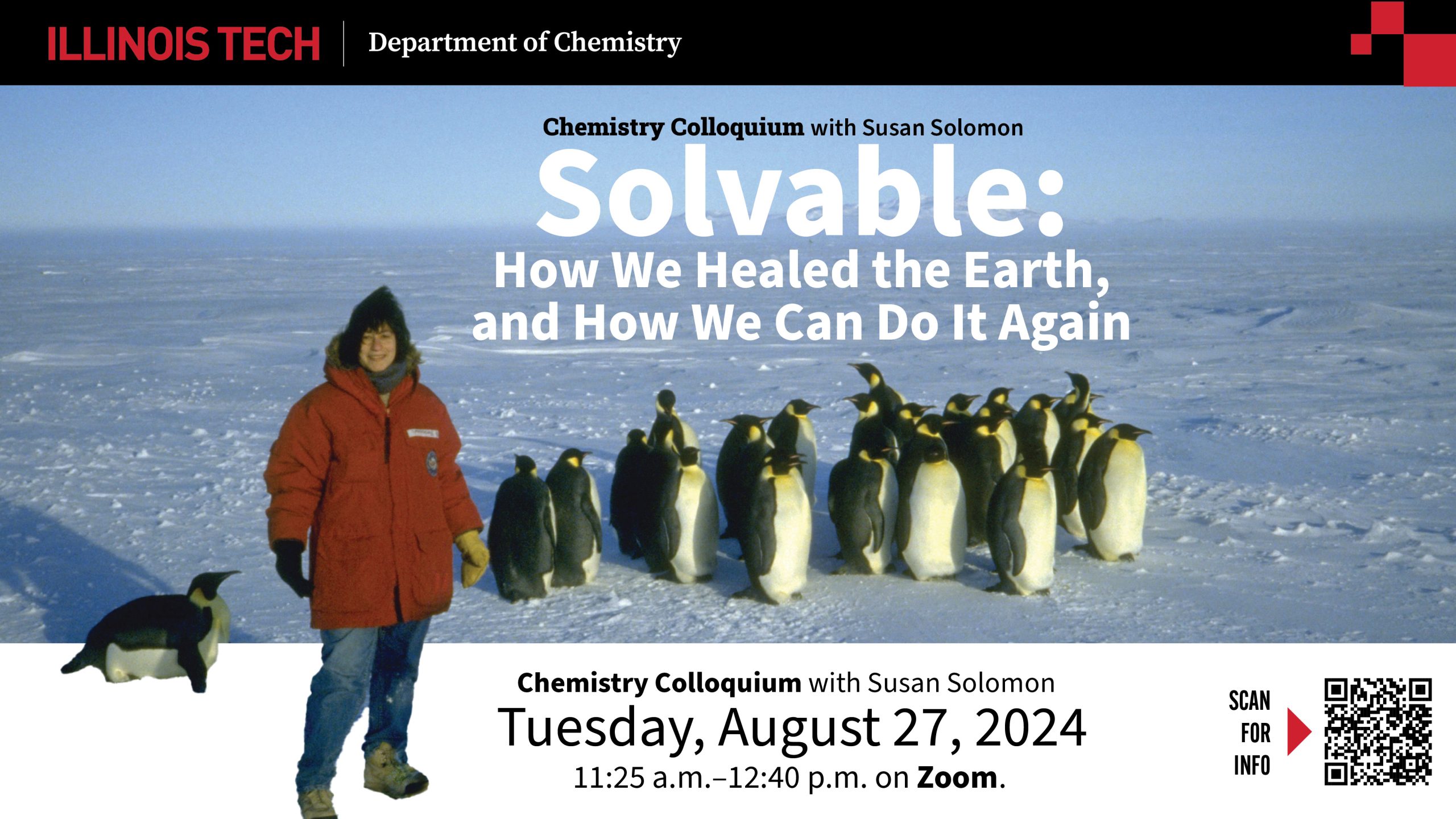The Department of Chemistry presents a Chemistry Colloquium with Susan Solomon (CHEM ’77), Lee and Geraldine Martin Professor of Environmental Science at Massachusetts Institute of Technology and a 2007 Nobel Peace Prize laureate, who will be presenting, “Solvable: How We Healed the Earth, and How We Can Do It Again.” This presentation will take place on Tuesday, August 27, 2024, from 11:25 a.m.–12:40 p.m. in room 121 of the Pritzker Science Center. This event is open to the public and will take place over Zoom.
Abstract
Humans have faced a series of national and global environmental challenges in the past half-century, including smog, ozone depletion, lead in gas and paint, pesticides and much more. This talk presents an analysis of how a union of science, public policy, technology, industry participation, and the engagement of citizens succeeded in addressing the Antarctic ozone hole. Selected other issues will also be briefly compared. Finally, I probe how understanding the past positions us to better manage today’s pressing environmental problem—climate change. It’s solvable, too.
Biography
Susan Solomon is the Martin Professor of Environmental Studies at the Massachusetts Institute of Technology. She is well known for pioneering research on the Antarctic ozone hole, and on understanding of the long-term impacts of climate change. She received the 1999 United States National Medal of Science (highest scientific award in the U.S.), the Grande Medaille of the French Academy of Sciences, and the Crafoord Prize of the Swedish Academy of Sciences. She is a member of the National Academy of Sciences, the French Academy of Sciences, the Pontifical Academy of Sciences, and the Royal Society in the United Kingdom. Time magazine named Solomon as one of the 100 most influential people in the world in 2008. A glacier in the Antarctic has been named after her.

